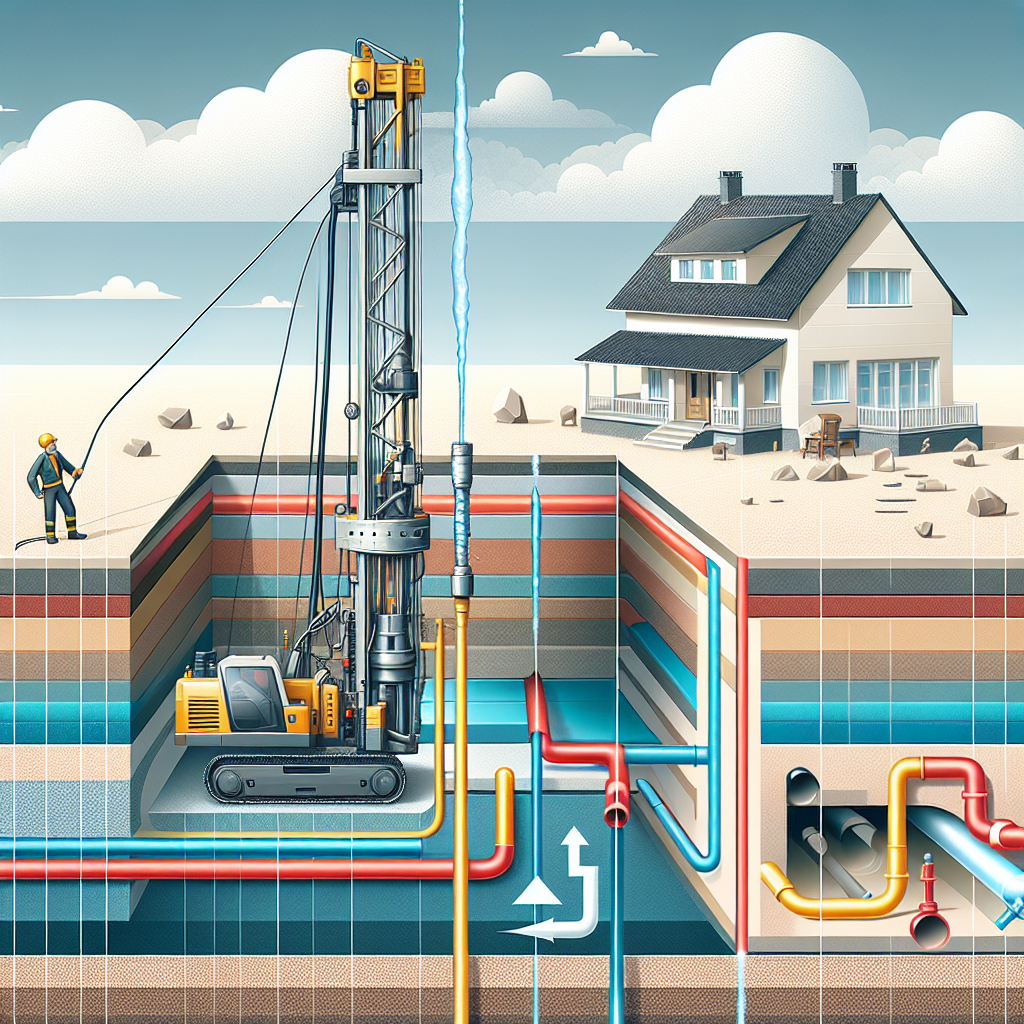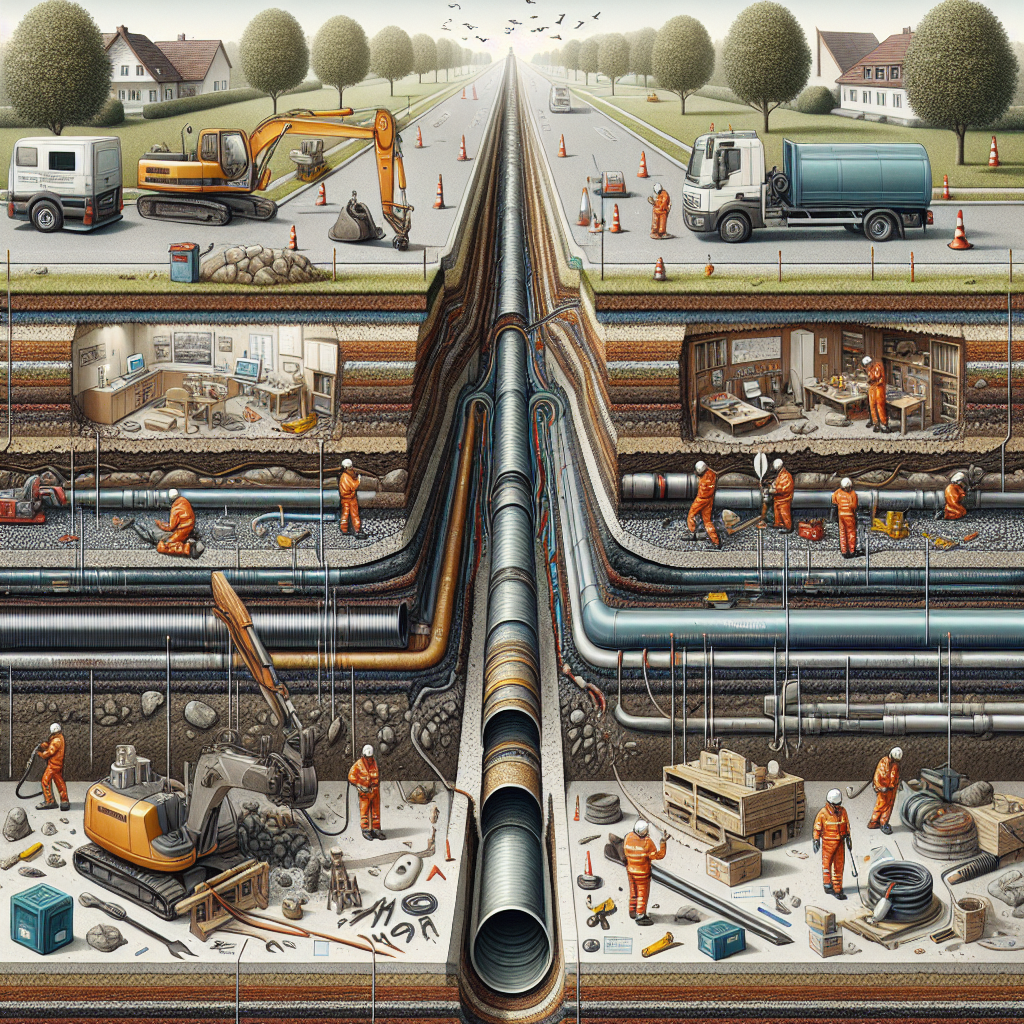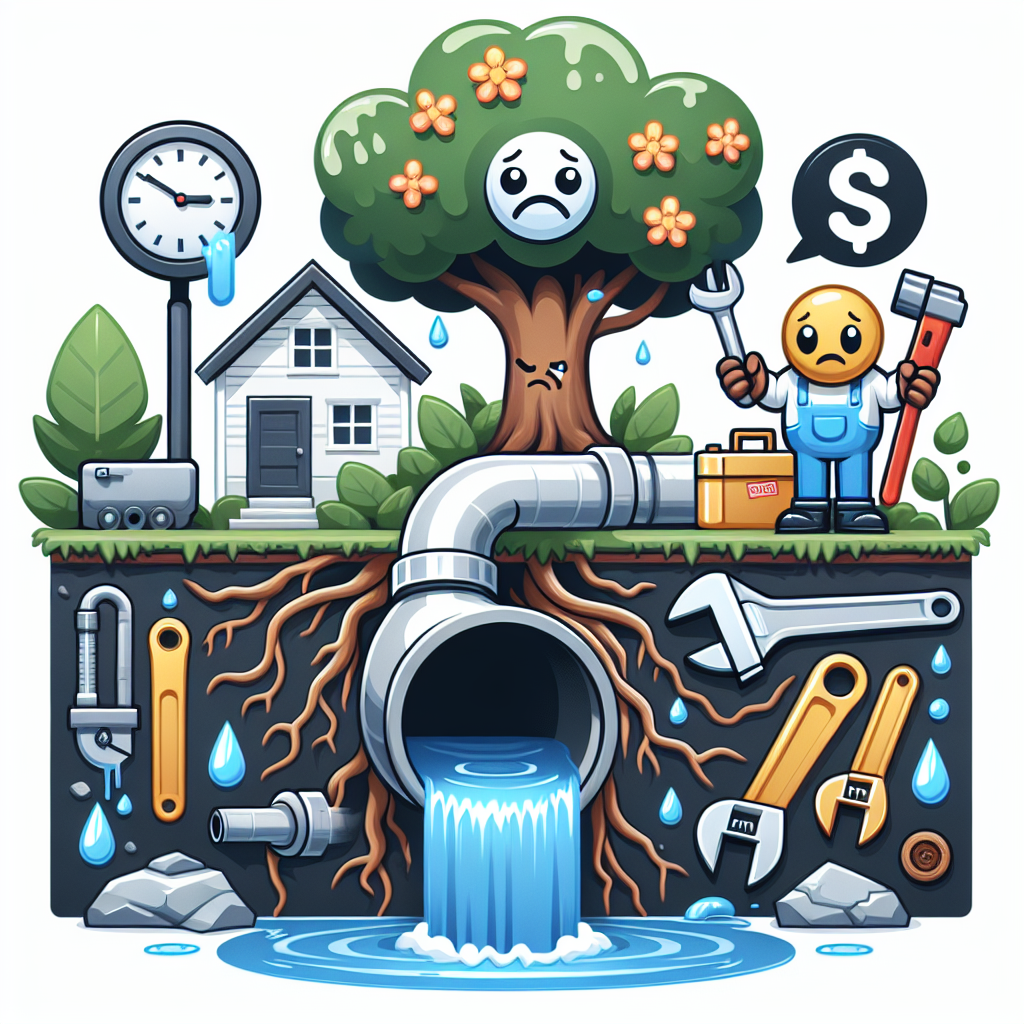Understanding the Basics of Plumbing for Property Managers
What is Plumbing and Why is it Important for Property Managers?
Plumbing is the system of pipes, fixtures, and appliances that deliver water to a property and remove wastewater. It encompasses everything from the water supply lines that bring clean water into a building to the drainage systems that carry waste away. For property managers, plumbing is a critical component of property maintenance. A well-functioning plumbing system ensures tenant comfort, prevents property damage, and upholds the overall value of the property.
A foundational understanding of plumbing systems is essential for property managers because it allows them to identify potential issues before they escalate into costly repairs. For instance, recognizing the early signs of a leaky pipe or a malfunctioning water heater can save thousands of dollars in water damage and emergency repairs. Additionally, plumbing problems can lead to tenant dissatisfaction, which may result in higher turnover rates and vacancies. Neglecting plumbing issues not only risks financial loss but also damages the reputation of the property management company.
The risks of ignoring plumbing maintenance are significant. A small leak can lead to mold growth, structural damage, and skyrocketing water bills. Clogged drains, if left unaddressed, can cause backups that disrupt daily life for tenants. By understanding the basics of plumbing, property managers can take a proactive approach to maintenance, ensuring the longevity of their properties and the satisfaction of their tenants.
Key Components of a Plumbing System
Pipes and Fittings
Pipes and fittings form the backbone of any plumbing system. They transport water to and from various parts of a property. Common materials used for pipes include PVC, copper, and PEX. PVC pipes are lightweight, affordable, and resistant to corrosion, making them ideal for drainage systems. Copper pipes, on the other hand, are durable and can withstand high temperatures, making them suitable for hot water lines. PEX pipes are flexible, easy to install, and resistant to freezing, making them a popular choice for modern plumbing systems. Understanding the types of pipes and their uses can help property managers make informed decisions during repairs or upgrades.
Fixtures and Appliances
Plumbing fixtures and appliances are the visible components of a plumbing system that tenants interact with daily. These include sinks, toilets, showers, bathtubs, and water heaters. Each fixture has specific maintenance needs. For example, water heaters require regular flushing to remove sediment buildup, while toilets may need occasional seal replacements to prevent leaks. Property managers should familiarize themselves with the basic maintenance requirements of these fixtures to ensure they remain in good working condition.
Drainage and Ventilation Systems
Proper drainage and ventilation are crucial for a healthy plumbing system. Drainage systems remove wastewater from the property, while ventilation systems prevent sewer gases from entering living spaces. Without proper venting, clogs and unpleasant odors can become recurring issues. Property managers should ensure that drainage systems are free of blockages and that vent pipes are unobstructed to maintain optimal system performance.
Common Plumbing Issues Property Managers Should Know
Leaky Faucets and Pipes
Leaky faucets and pipes are among the most common plumbing issues. They are often caused by worn-out washers, loose connections, or corrosion. While a dripping faucet may seem minor, it can waste hundreds of gallons of water over time, leading to higher utility bills. Leaky pipes, on the other hand, can cause water damage, mold growth, and structural issues. Property managers should regularly inspect for leaks and address them promptly to avoid costly repairs.
Clogged Drains and Toilets
Clogs are another frequent problem in rental properties. They are typically caused by the buildup of grease, hair, soap scum, or foreign objects. To prevent clogs, property managers can educate tenants on proper disposal practices, such as avoiding flushing non-biodegradable items down the toilet. Basic troubleshooting, like using a plunger or a drain snake, can resolve minor clogs. However, persistent blockages may require professional intervention.
Water Pressure Problems
Water pressure issues can manifest as either low or high pressure. Low water pressure may result from clogged pipes, leaks, or issues with the municipal water supply. High water pressure, while less common, can strain plumbing fixtures and lead to leaks. Property managers should monitor water pressure levels and address any abnormalities to ensure tenant comfort and prevent damage to the plumbing system.
Water Heater Failures
Water heaters are essential for tenant comfort, but they are prone to issues like insufficient hot water, strange noises, or leaks. These problems can result from sediment buildup, faulty thermostats, or aging components. Property managers should schedule regular maintenance for water heaters and know when to call a professional for repairs or replacements.
Preventative Plumbing Maintenance Tips
Regular Inspections
Routine plumbing inspections are the cornerstone of preventative maintenance. Property managers should create a checklist that includes inspecting pipes for leaks, checking water pressure, and testing fixtures for proper functionality. Regular inspections can help identify potential issues before they escalate.
Seasonal Maintenance
Plumbing systems require seasonal care to function optimally. In winter, pipes should be insulated to prevent freezing, while outdoor faucets should be drained and covered. In summer, irrigation systems should be checked for leaks, and water heaters may need temperature adjustments. Seasonal maintenance ensures the plumbing system is prepared for weather-related challenges.
Water Conservation Practices
Encouraging tenants to adopt water-saving habits benefits both the environment and the property’s bottom line. Simple practices like fixing leaks promptly, installing low-flow fixtures, and using water-efficient appliances can significantly reduce water consumption. Property managers can also provide tenants with tips on conserving water, such as turning off taps while brushing teeth or using dishwashers only when full.
When to Call a Professional Plumber
While property managers can handle minor plumbing issues, some situations require professional expertise. Burst pipes, sewer backups, and major leaks are emergencies that demand immediate attention. Additionally, complex tasks like water heater installations or pipe replacements should always be handled by licensed plumbers.
Choosing a reliable plumber is crucial. Property managers should vet contractors by checking their licenses, insurance, and reviews. Maintaining a list of trusted plumbers ensures quick response times during emergencies, minimizing damage and inconvenience for tenants.
Plumbing Codes and Regulations Property Managers Should Know
Compliance with local plumbing codes is non-negotiable for property managers. These codes dictate the standards for plumbing installations and repairs, ensuring safety and functionality. For major plumbing projects, permits are often required. Failing to obtain the necessary permits can result in fines and legal issues.
Property managers should familiarize themselves with the plumbing codes in their area and work with licensed professionals who adhere to these regulations. Staying compliant not only avoids penalties but also ensures the safety and satisfaction of tenants.
Tools and Resources Every Property Manager Should Have
Essential Tools
Every property manager should have a basic plumbing toolkit that includes plungers, pipe wrenches, drain snakes, and Teflon tape. These tools can handle minor repairs and emergencies, such as unclogging drains or tightening loose fittings.
Educational Resources
To deepen their understanding of plumbing, property managers can explore online courses, books, and guides. Resources like the Plumbing-Heating-Cooling Contractors Association (PHCC) offer valuable insights and training opportunities.
Emergency Contact List
An up-to-date emergency contact list is indispensable. It should include trusted plumbers, water damage restoration services, and utility companies. Having this information readily available ensures swift action during plumbing emergencies.
The Role of Plumbing in Tenant Satisfaction and Retention
Well-maintained plumbing systems play a significant role in tenant satisfaction. Functional fixtures, consistent water pressure, and prompt resolution of plumbing issues contribute to a comfortable living environment. Addressing tenant complaints about plumbing problems quickly builds trust and fosters positive relationships.
Proactive maintenance not only enhances tenant satisfaction but also improves retention rates. Tenants are more likely to renew their leases when they feel their concerns are addressed promptly and their living conditions are prioritized.
Cost Management: Balancing Repairs and Upgrades
Budgeting for plumbing repairs and upgrades is a critical aspect of property management. Property managers should allocate funds for routine maintenance and unexpected repairs. When deciding between repairing or replacing plumbing components, factors like age, cost, and efficiency should be considered.
Investing in modern plumbing systems, such as water-efficient fixtures and tankless water heaters, can yield long-term savings. While the upfront costs may be higher, the reduced water and energy bills make these upgrades worthwhile.
You might also like
Book a Service Today
We will get back to you as soon as possible
Please try again later
Do You Need Emergency Plumbing Services?
We are dedicated to giving your fast, friendly and reliable service. We offer services every day of the week, at the time that's best for you.
All Rights Reserved | Root 24 Hours, Inc. | Powered by Beholder Agency



